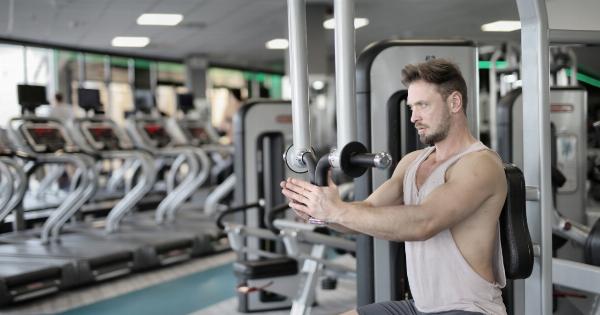Stiff Person Syndrome (SPS) is a rare neurological disorder characterized by muscle stiffness and spasms that affect various parts of the body.
This autoimmune condition is often misdiagnosed due to its rarity and complex symptoms, making it a challenging and little-understood condition. One celebrity who has openly shared her battle with SPS is the iconic singer, Celine Dion. Let’s delve into the intricacies of this disorder and explore how it afflicts individuals like Celine Dion.
The Basics of Stiff Person Syndrome
Stiff Person Syndrome, also known as Stiff Man Syndrome, primarily affects the muscles of the torso and limbs, leading to heightened muscle rigidity and painful spasms.
This condition is thought to arise from an immune system dysfunction, where the body’s defense mechanisms mistakenly attack and damage the nerve cells responsible for muscle relaxation.
SPS often manifests in sudden episodes of muscle stiffness, making movements strenuous and limited. These episodes can be triggered by various factors, including emotional stress, loud noises, or even a simple touch.
Anxiety and fear of having an episode can further exacerbate the symptoms, creating a distressing cycle for those living with the condition.
The Symptoms and Diagnosis
The symptoms of Stiff Person Syndrome can vary in intensity and affect different individuals differently. Some common symptoms include:.
- Muscle stiffness and rigidity, particularly in the trunk and limbs
- Spontaneous muscle spasms, which can be extremely painful
- Difficulty with balance and coordination
- Heightened sensitivity to touch, noise, or emotional stress
- Postural issues, such as an arched back (hyperlordosis)
- Episodes of muscle stiffness leading to falls or difficulty in standing
However, diagnosing Stiff Person Syndrome can be complex due to its rarity and similarity with other conditions like multiple sclerosis or Parkinson’s disease.
Doctors usually rely on a combination of medical history, physical examination, and specialized tests to reach a diagnosis. These tests may include blood tests to detect specific antibodies or electromyography (EMG) to evaluate electrical activity in the muscles.
Treatment Options
Although there is currently no cure for Stiff Person Syndrome, treatment focuses on managing the symptoms and improving the individual’s quality of life. The following treatment options may be employed:.
- Medication: Muscle relaxants and anti-anxiety medications can help alleviate muscle stiffness and spasms.
- Intravenous Immunoglobulin (IVIg) Therapy: This treatment involves infusing high doses of immunoglobulins into the bloodstream to modulate the immune system and reduce symptoms.
- Plasma Exchange: Plasma, the liquid component of the blood, is replaced with donated plasma to remove harmful antibodies and alleviate symptoms.
- Physical Therapy: Regular exercise and physical therapy help maintain muscle strength and flexibility, enabling better overall mobility.
- Pain Management: Various techniques, such as transcutaneous electrical nerve stimulation (TENS) or acupuncture, may be used to manage pain associated with the condition.
It is essential for individuals with SPS to work closely with a team of healthcare professionals, including neurologists, physiotherapists, and occupational therapists, to develop a personalized treatment plan that addresses their specific needs.
Celine Dion’s Battle with Stiff Person Syndrome
Celine Dion, renowned for her powerhouse vocals and captivating performances, shocked the world when she revealed her struggle with Stiff Person Syndrome.
Dion shared that SPS had caused devastating challenges throughout her life, impacting her ability to perform on stage and engage in everyday activities.
In an emotional interview, Dion spoke of the constant pain and the distressing limitations imposed by the condition.
Despite these struggles, she remains determined to continue singing and sharing her music with the world, demonstrating immense strength and resilience.
Dion’s openness about her battle with Stiff Person Syndrome has brought much-needed attention to this rare condition, raising awareness and fostering empathy among her vast fan base.
Living with Stiff Person Syndrome
Living with Stiff Person Syndrome presents numerous challenges both physically and emotionally. The daily struggles and uncertainty associated with this condition can take a toll on the affected individuals and their loved ones.
However, with proper support and management, it is possible to lead a fulfilling life even with SPS.
Support groups and online communities dedicated to rare disorders like SPS can provide a valuable platform for individuals to connect, share experiences, and seek guidance.
These communities offer solace and understanding, reminding those affected by SPS that they are not alone in their journey.
Research and Hope for the Future
As Stiff Person Syndrome remains a rare and relatively less-known condition, research and understanding of the disorder are still evolving.
Ongoing studies aim to uncover the root causes, develop more effective treatment approaches, and ultimately find a cure.
By supporting organizations dedicated to rare conditions and participating in fundraising activities, individuals can contribute to the ongoing research efforts.
These collective endeavors offer hope for advancements in the understanding and management of Stiff Person Syndrome, bringing newfound optimism to those affected.
Conclusion
Stiff Person Syndrome is a rare and complex neurological disorder that causes muscle stiffness and spasms, significantly impacting the lives of those affected.
The journey of living with SPS can be daunting, but with proper diagnosis, treatment, and support, individuals can navigate the challenges and lead fulfilling lives.
Celine Dion’s openness about her struggle with Stiff Person Syndrome has shed light on this little-understood condition, raising awareness and fostering empathy.
Through research and collective efforts, the future holds promise for improved understanding and management of this condition, offering hope to all individuals battling Stiff Person Syndrome.






























